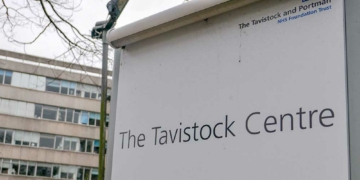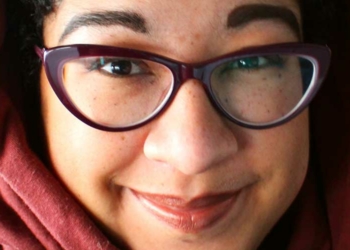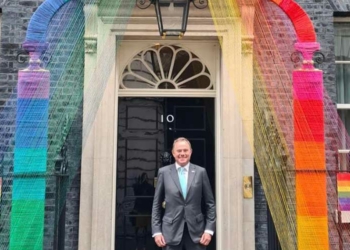Recently, Michaela Cuomo, daughter of New York governor Andrew Cuomo, ‘bravely’ came out as ‘queer’ to much acclaim from national newspapers and media sources in both the US and the UK. But what did she mean? Is she a lesbian? Bisexual? No. Michaela Cuomo has ‘bravely’ come out as ‘demisexual’ – one of the newest identity labels forcing itself into LGB spaces, and a label I am (deeply) ashamed to say I also used to use.
What is demisexuality? To those who use it, demisexual means to only feel sexual attraction to somebody once a level of emotional connection has been formed. It’s not just about wanting to wait to have sex (although is sometimes explained like this), but about not being able to develop feelings of attraction until a platonic bond has been made. Now, reading this, many people will nod their heads and recognise this as an entirely average and non-remarkable concept, not worthy of any such label, especially one that is being pushed under the ‘queer umbrella’. Those people are spot-on. Unfortunately, demisexuality is one of the new popular labels, and is seeing an increasing number of people adopting it, especially amongst women in their teens and early twenties.
So how did I come to use this? I actually heard of demisexuality through my mother. She found an article published in a newspaper and forwarded it to me, suggesting I read it as she thought it sounded ‘like me’. See, I’d always found identifying attraction ‘difficult’. I always knew I was only attracted to women, but my attraction always felt very ‘all or nothing’. I’d never been the sort to have a ‘type’. My celeb crushes were few and far-between. And by this point, I was a single lesbian in my early twenties watching all my friends, gay and straight, date (and sleep) around seemingly happy, whilst I struggled to find anyone I was remotely interested in. The idea of a label, demisexual, was a soothing idea. I wasn’t wrong, I wasn’t strange. It was just who I was. It was a comforting label that allowed me to stop judging myself, or comparing myself to others. Harmless.
The addition of demisexual suddenly means that a heterosexual couple who just needed more time getting to know each other before dating can see themselves as just as ‘queer’ (and thus socially oppressed) as a gay or lesbian couple, and take the spaces and platforms we need as LGB people for themselves.
Except, this label, as with the lists of others that are added to the LGB every year, isn’t harmless. Not really. Including labels such as ‘demisexual’ in with LGB identities during Prides and other LGB spaces allows demisexual heterosexuals to see themselves as just as ‘queer’ as gay and lesbian individuals. The addition of demisexual suddenly means that a heterosexual couple who just needed more time getting to know each other before dating can see themselves as just as ‘queer’ (and thus socially oppressed) as a gay or lesbian couple, and take the spaces and platforms we need as LGB people for themselves. Demisexuals even have their own pride flag, a flag that often feels unfortunately more common at Pride marches than the lesbian flag, reflecting already how LGB spaces are increasingly fail to represent truly gay and lesbian people, and failing to fight against the real oppressions we face. I’m sure as we all know, 69 countries still have laws that criminalise homosexuality, not a single one has a law against demisexuals.
But the demisexual label can have a negative impact on LGB individuals too, who may be drawn to it as I was. The idea of ‘demisexuality’, needing to know someone before you feel attracted to them, positions the anonymous hook-up culture of today (a culture I’m sure we recognise as very prevalent in the LGB club scene) as the universal human norm, and anything else as different. This is just not true. Whilst of course there are those who do enjoy this, hook-up culture is hardly the cultural standard, especially for older generations, and the creation of a label to reflect this only heightens anxiety for those who may otherwise have just acknowledged their lack of interest in hook-up culture and online dating as no more than their own preference. LGB people can feel more susceptible to this thinking often due to insecurities around their sexuality already, especially young or newly come-out individuals, and can feel an inward pressure to ‘prove’ their sexuality, either to themselves or others, by pushing themselves into sexual or romantic encounters before they are comfortable to try and fit how they think they should be behaving. Whilst ‘demisexual’ can then feel like a welcome label to justify their lack of enjoyment, just as I found it, all it really does is create yet another expected norm for LGB people, that of hyper-sexualisation, a norm that in no way reflects varied LGB experiences.
I could even spot my own residual internalised insecurity over my lesbianism – was I still a lesbian if I was attracted to fewer women than other lesbians? Yes, of course – just ask my girlfriend.
I stopped using the ‘demisexual’ label only two years ago. It helped that I was in a long-term relationship, and was out of the online-dating world, and so no longer felt it ‘odd’ that I wanted to get to know someone before I felt attraction. It also helped that I had grown up a little more; I looked back on the experiences that had led to my use of ‘demisexual’ with new eyes. I could think back over the dating stories of my friends, and realise that I never needed to judge myself against these, and that even some of my friends had been guilty of pushing themselves into situations they hadn’t fully enjoyed just to fit into the hook-up culture. With distance, I could understand the pressures of online dating, and the reality that I had enjoyed it just as much as most do – very little. And I could even spot my own residual internalised insecurity over my lesbianism – was I still a lesbian if I was attracted to fewer women than other lesbians? Yes, of course – just ask my girlfriend.
I predict that, just as I did, the young people today using ‘demisexual’ to define themselves against today’s over-sexualised culture will also grow out of this label. That they too will realise that experiences of attraction and sexuality are diverse, regardless as to whether you are straight, gay or bisexual, and that there is no ‘norm’, and in doing so, these people will be able to live their lives with much more freedom than such arbitrary labels provide. However, as these labels continue to push themselves under the ‘queer umbrella’ what we as LGB people must do is resist the taking of our spaces and our voices. We must ensure we keep our spaces, our culture, and our histories, and that we keep the focus of the fight on homophobia, rather than on heterosexuals who just happen to prefer friendship before dating.
Kat Howard is a lesbian radical feminist, working as a writer and secondary school teacher.
























Comments
No comments yet, be the first to leave a comment.